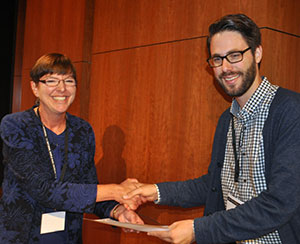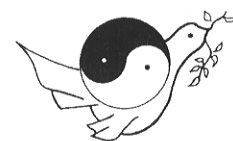|
|
|

 Charles Debenedetti Memorial Prize Charles Debenedetti Memorial Prize
Best Article published in Peace History in 2015-16
Awarded October 2017
Since 1987-88, the Peace History Society has awarded the Charles DeBenedetti Prize biannually (in even years). Articles may focus on the history of peace movements, the response of individuals to peace and war issues, the relationship between peace and other reform movements, gender issues in warfare and peacemaking, comparative analyses, and quantitative studies. This year, the Prize is awarded to the author of an outstanding English-language journal article, book chapter, or introduction on peace history published in 2015 or 2016. The DeBenedetti Committee includes Rachel Waltner Goossen of Washburn University (chair and most recent recipient of the prize), Erika Kuhlman of Idaho State University, and Andrew Barbero of Pensacola State College. The DeBenedetti Committee reviewed 51 publications.
For the best article published in 2015 or 2016, the Peace History Society awards this prize to Ryan J. Kirkby for his article: “Dramatic Protests, Creative Communities: VVAW and the Expressive Politics of the Sixties Counterculture,” Peace & Change 40 (January 2015): 33-62. Ryan J. Kirkby’s scholarship on guerilla theater as a form of political protest by the rapidly-growing Vietnam Veterans Against the War (VVAW) during the early 1970s is a compelling, deeply-researched study of returning veterans’ strategizing for antiwar activism. Rooted in a historiography probing the combination of political activism and cultural forms (especially theatre arts), Kirkby’s work spans diverse regions of the American home front, where recently-returned vets performed plays--including mock search-and-destroy missions, as well as war crimes hearings—in public spaces. In this context, John Kerry and others within the VVAW movement turned a grassroots campaign toward a national antiwar spotlight. Kirkby’s study effectively couples the VVAW’s strategy of dramatic street protests with other experiments in community activism. By demonstrating how the antiwar veterans’ social organizing included rap groups, drug rehab referrals, and other communal efforts, his article demonstrates how the VVAW’s efforts and successes paralleled women’s liberation activism as well as other countercultural movements in the era known as “the long sixties.”

|

